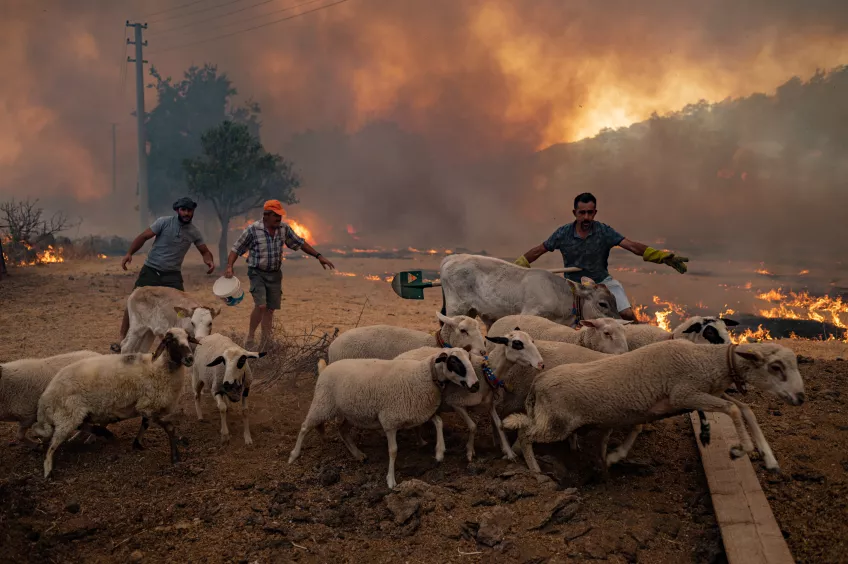Wildfires in the Anthropocene
EXPLORING DRIVERS AND EFFECTS OF FIRES IN THE PAST, PRESENT AND FUTURE. ASG 2022
The world is burning. Wildfires have in the past few years ravaged large areas in Australia, the Americas, and Europe, as well as in other parts of the world. Predictions say that the fire risk will increase with an increased global temperature. In addition to climate change and weather factors, human activities, such as land use change, fireworks, and armed conflicts, also directly impact fire risk or constitute causes of ignition.
Wildfires across the globe receive more and more attention in the news as a global threat risking the future of life on earth. Only in August 2021, forest fires across southern Europe, the Balkans, in the west coast of the United States of America, and Russia had burnt millions of hectares. In Sweden, the summer of 2018 saw a higher-than-usual number of wildfires and a substantially larger area burnt than in previous years.
While fires may play a positive role in some ecosystems, they have been found to be extremely harmful to other, more sensitive, ecosystems. As humans change the spatial and temporal patterns of fires through e.g. climate change and land use change, biodiversity declines further and ecosystems and their services provided to humans are harmed. Fires are also harmful to public health, through air pollution and mental health.
Scholars at Lund University carry out research about different aspects of fires, such as fire safety, climate change, biodiversity, public health, conflicts, and environmental security. However, until now these researchers have not come together in a group to study fires in an interdisciplinary way. This Advanced Study Group brings together researchers from several different disciplines and faculties, who share a joint research interest around the topic of wildfires.
The discussions will be guided by the following research question:
What characterizes wildfires in the Anthropocene epoch?
The ASG aims to
- Understand the different anthropogenic and non-anthropogenic causes of wildfires, and how they work together to ignite or create increased wildfire risk
- Discuss the short-and long-term effects of wildfires on issues such as environment, biodiversity, society, economy, and health
- Find ways to prevent the world from or prepare it for heightened wildfire risk?
- Work towards expanding the theoretical, methodological, and empirical knowledge in the field?
Throughout the ASG, the group will gather monthly for literature seminars and seminars with guest speakers. The long-term goal is to generate future research projects.


